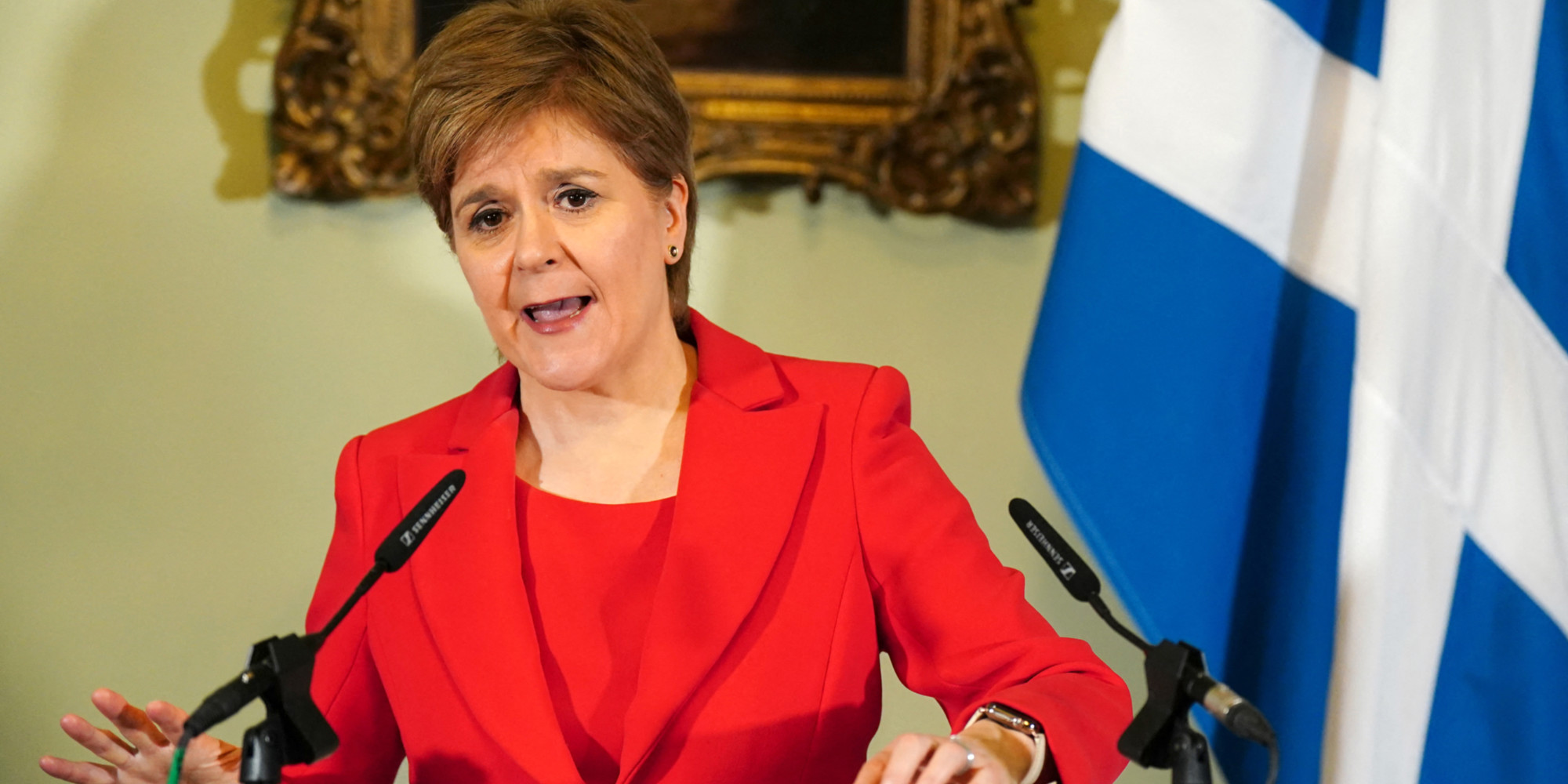Europe 1 with AFP 2:51 p.m., February 15, 2023
Quite unexpectedly, Scottish First Minister Nicola Sturgeon announced her resignation on Wednesday after eight years in office.
Throughout her mandate, she has never ceased to claim her desire for independence from Scotland, but the adoption of a very controversial law in December has considerably weakened it.
"I am a human being": to everyone's surprise, Scottish Prime Minister Nicola Sturgeon announced her resignation on Wednesday after eight years in power, a departure which is a blow to the British nation's desire for independence.
While making Scottish independence the fight of a lifetime, which she wore with determination without being able to overcome opposition from London, she decided to throw in the towel.
Visibly moved, sometimes on the verge of tears, the 52-year-old leader told the press in Edinburgh that she would step down as soon as the Scottish National Party (SNP) had appointed her successor.
"This work is a privilege, but also very difficult," she said.
“I am a human being”, explained the one who still said in January, after the resignation of New Zealand Prime Minister Jacinda Ardern, to have “full of energy”.
"I could have done a few more months, maybe six months, a year," she said.
"But over time I would have had less and less energy for my work and I can only do it 100%, that's what the country deserves."
First woman to head the Scottish government
Claiming to have matured her decision for a long time, she cited the changes in her family and the funeral of a loved one, the difficulty of being able to "have a coffee with a friend, or go out, alone, for a walk".
Her departure, with no obvious successor (she refused to support anyone), is a blow to the independence cause, of which she was an undisputed figure, determined and appreciated by the public, and which she had supported since her adolescence. .
>>
READ ALSO
- After the death of Elizabeth II, the Scots face the question of their independence
Born in the industrial town of Irvine, south-west of Glasgow, Nicola Sturgeon joined the SNP aged 16.
Peter Murrell, her husband, is the party's chief executive.
She took over as head of the SNP and the Scottish government - the first woman to hold this post - after the resignation in 2014 of her predecessor Alex Salmond.
The Scots had then voted 55% in favor of remaining within the United Kingdom.
She had since patiently resumed the fight for independence, reinvigorated by the Brexit which the Scots had mostly opposed.
She campaigned for the organization of a new vote.
In recent years, the fluctuating polls have regularly tilted in favor of a "yes" to independence.
But the British government remains firmly opposed to it, recently confirmed by the Supreme Court, leaving any referendum project deadlocked.
A highly controversial law passed in December
Conservative Prime Minister Rishi Sunak reacted soberly to the departure of Nicola Sturgeon by thanking her for her "long service" and wishing her "the best for the future".
Her Minister for Scotland Alister Jack hailed "a formidable politician" but called on Edinburgh to take advantage of her departure to "abandon her obsession with independence, which is a source of division".
>>
READ ALSO
- Does Scotland really have a chance of becoming independent?
In power, Nicola Sturgeon has accumulated electoral successes, obtaining once again in May 2021 a pro-independence majority in the local Parliament with the Greens.
But his electoral strategy of wanting to transform the legislative elections, scheduled in less than two years, into a de facto referendum on secession, was little appreciated by voters.
If she assured that she had not made her decision because of "short-term pressures", Nicola Sturgeon was personally weakened by the adoption in December of a very controversial law facilitating gender transition, permitted from the age of 16 and without medical opinion.
A scandal that arose just after the vote
London has said it wants to oppose it and the measure has been criticized by feminists, including the best-selling Harry Potter author JK Rowling who lives in Scotland.
Critics of the text believe that sexual predators can use it to access places reserved for women.
Just after the vote, a scandal came to give them grist for the mill: a transgender woman convicted of raping women before her transition had been incarcerated in a women's prison, creating strong reactions.
She was eventually transferred to a men's prison, pushing Nicola Sturgeon into a rare reversal.

